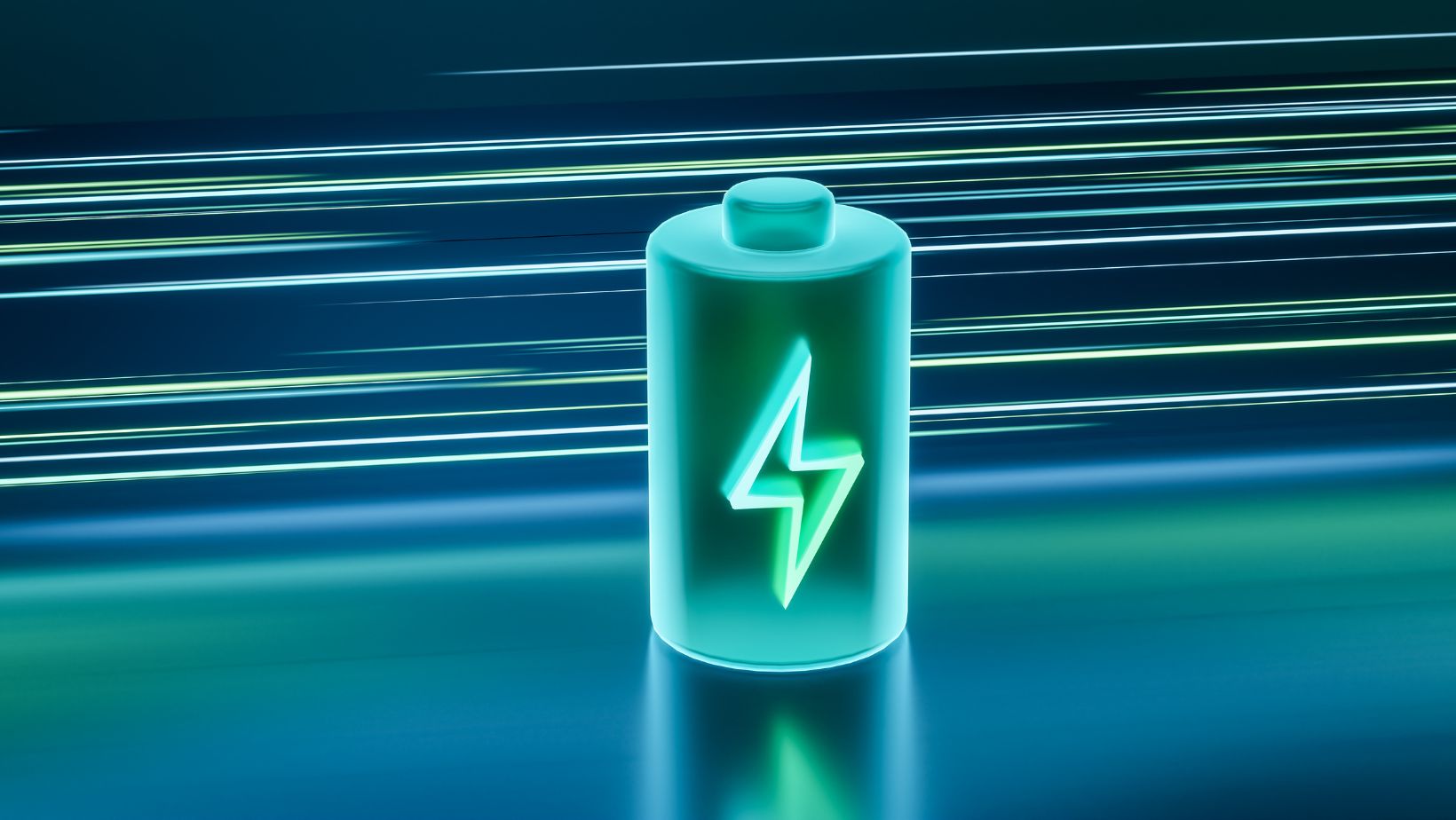In a world relentlessly propelled by innovation and technology, “battery technology” stands as a cornerstone of modern advancement. This field, blending chemistry, physics, and engineering, has become an integral part of our daily lives, powering everything from the smallest of gadgets to the largest of vehicles. The journey of battery technology is not just a story of scientific progress; it’s a narrative that mirrors our evolving needs and aspirations.
The pivotal role of battery technology in shaping our world
The advancements in battery technology have revolutionized countless industries, altering the very fabric of our society. From the way we communicate to how we commute, the influence of efficient and sustainable energy storage solutions is omnipresent. The evolution of portable power has enabled a mobile, connected, and increasingly sustainable world. It has given rise to electric vehicles, made renewable energy sources more viable, and even transformed the way we interact with our personal devices.
As we stand at the crossroads of an energy revolution, where the demands of efficiency, sustainability, and portability intersect, battery technology emerges as a pivotal force. It’s a field that not only powers our present but also holds the key to our future – a future that promises cleaner energy, smarter technology, and a greener planet. This blog delves into the captivating journey of battery technology, tracing its roots from the humble experiments of Alessandro Volta to the sophisticated battery systems of today, and peering into the electrifying possibilities of tomorrow.
Advancements in battery manufacturing: Paving the way for a greener future
The realm of “battery manufacturing” has seen remarkable transformations in recent years, primarily driven by the need for more efficient and sustainable energy solutions. Modern manufacturing processes have evolved to incorporate cutting-edge techniques that significantly enhance battery performance and longevity. Innovations like solid-state technology, improved cathode materials, and advanced electrolyte solutions are at the forefront, promising to redefine energy storage standards.
These advancements are not just technical achievements; they represent a significant stride towards environmental sustainability. Manufacturers are increasingly focusing on reducing the carbon footprint of battery production, utilizing renewable energy sources, and implementing recycling processes to ensure a more sustainable lifecycle for batteries. The industry’s pivot towards eco-friendly practices is a testament to its commitment to a greener future.
Lithium-Ion: The powerhouse of modern battery technology
The dominance of lithium-ion (Li-ion) battery technology in the current battery landscape is undeniable. Its high energy density, longer lifespan, and relative stability have made it the preferred choice for a myriad of applications, from powering smartphones and laptops to electric vehicles and grid storage systems. The widespread adoption of Li-ion batteries has been a game-changer, enabling the development of more compact, efficient, and powerful devices.
As we continue to rely on Li-ion technology, ongoing research and development efforts are geared towards enhancing its performance and safety features. Improvements in electrode materials and design are continuously being explored to increase energy capacity and reduce risks like overheating.
Navigating challenges and solutions in battery manufacturing
Despite the strides in “battery technology,” the industry faces its share of challenges. One of the primary concerns is sustainability – both in terms of the materials used and the end-of-life disposal of batteries. The reliance on rare earth elements and the environmental impact of mining and processing these materials pose significant challenges.
However, the industry is not without solutions. Advances in battery recycling techniques are emerging as a key strategy to address sustainability issues. Recycling not only reduces the demand for raw materials but also minimizes the environmental impact of battery disposal. Moreover, research into alternative materials and battery chemistries, such as sodium-ion and silicon-based batteries, offers promising avenues for more sustainable and efficient battery technologies.
As we navigate these challenges, the continuous innovation and problem-solving approach within the battery industry are pivotal in driving us towards a more sustainable and energy-efficient future.

Future trends and predictions in battery technology
As we look ahead, the landscape of battery technology brims with potential, driven by relentless innovation and a growing emphasis on sustainability. This section explores the emerging technologies in battery manufacturing, the shift towards sustainable practices and novel materials, and what the next generation of batteries might look like.
Innovations on the horizon: revolutionizing battery manufacturing
The horizon of battery manufacturing is witnessing the dawn of groundbreaking innovations that promise to revolutionize the industry. Technologies like solid-state batteries are at the forefront, offering higher energy densities and improved safety compared to traditional lithium-ion batteries. These advancements could potentially lead to longer-lasting batteries, which could significantly impact everything from electric vehicles to large-scale energy storage systems.
Another exciting development is the exploration of alternative battery chemistries, such as lithium-sulfur and sodium-ion batteries. These technologies offer the promise of cheaper, more abundant materials, and an environmentally friendlier footprint, addressing some of the critical limitations of current battery technologies.
Sustainable practices and novel materials: The future of battery technology
Sustainability is becoming a central theme in the advancement of “battery technology”. Future trends indicate a shift towards eco-friendly manufacturing processes and the utilization of novel, sustainable materials. Researchers are exploring bio-derived materials and recyclable components to create batteries that are not only efficient but also environmentally conscious.
One of the key areas of focus is improving the lifecycle of batteries. This includes enhancing the recyclability of batteries and reducing dependency on rare and potentially harmful materials. The integration of green manufacturing processes and the pursuit of carbon-neutral production methods are also gaining traction, reflecting a holistic approach to sustainability in battery technology.
The next generation of batteries: A glimpse into tomorrow
Looking into the future, the potential for battery technology is limitless. The next generation of batteries is expected to offer greater capacities, faster charging times, and longer lifespans. Research in areas like nanotechnology and advanced electrode design is paving the way for batteries that could power homes on renewable energy or enable longer-range electric vehicles.
Moreover, the integration of battery technology with emerging fields like artificial intelligence and the Internet of Things (IoT) could lead to smarter, more efficient energy management systems. This integration could fundamentally change how we store and use energy, making it more adaptable to our needs and less impactful on the environment.
In conclusion, the future of battery technology is not just about incremental improvements but a transformative shift towards more sustainable, efficient, and versatile energy storage solutions. With ongoing research and development, the next generation of batteries is set to redefine our relationship with energy, powering a cleaner, more sustainable future.

From Volta to the future: The remarkable journey of battery technology
The story of “battery technology” is a remarkable saga of human curiosity and ingenuity. It began with Alessandro Volta’s simple yet groundbreaking voltaic pile, opening a world of possibilities. Since then, each epoch in battery development has not just been about more efficient energy storage; it has been about unlocking new frontiers in various fields of human endeavor. The transformation from Volta’s primitive cells to today’s sophisticated lithium-ion batteries and beyond is not just a timeline of scientific advancement; it is a testament to the indomitable human spirit to innovate and improve.
The growing impact of battery technology in modern society
As we reflect on the evolution of battery technology, its growing importance across diverse sectors becomes increasingly evident. In the realms of renewable energy, electric vehicles, consumer electronics, and beyond, batteries have become indispensable. The continuous refinement in battery manufacturing, aiming for more efficient, sustainable, and powerful solutions, has been pivotal in driving technological progress and environmental sustainability. The role of batteries in powering a cleaner, more efficient future cannot be overstated.
Envisioning the future: The ever-evolving landscape of battery technology
Looking towards the future, the landscape of battery technology is set for further evolution and revolutionary changes. With the ongoing research in novel materials, sustainable practices, and innovative designs, the potential of batteries extends far beyond current applications. We are on the brink of a new era where batteries will not just be a source of power but a key enabler of a more sustainable and technologically advanced society.
The journey of battery technology, from Alessandro Volta’s pioneering work to the future’s cutting-edge innovations, is more than a chronicle of scientific progress; it is a narrative of human aspiration and environmental consciousness. As we continue to push the boundaries of what’s possible, the story of battery technology is bound to be filled with more groundbreaking chapters, each contributing to a more sustainable, efficient, and empowered world.




